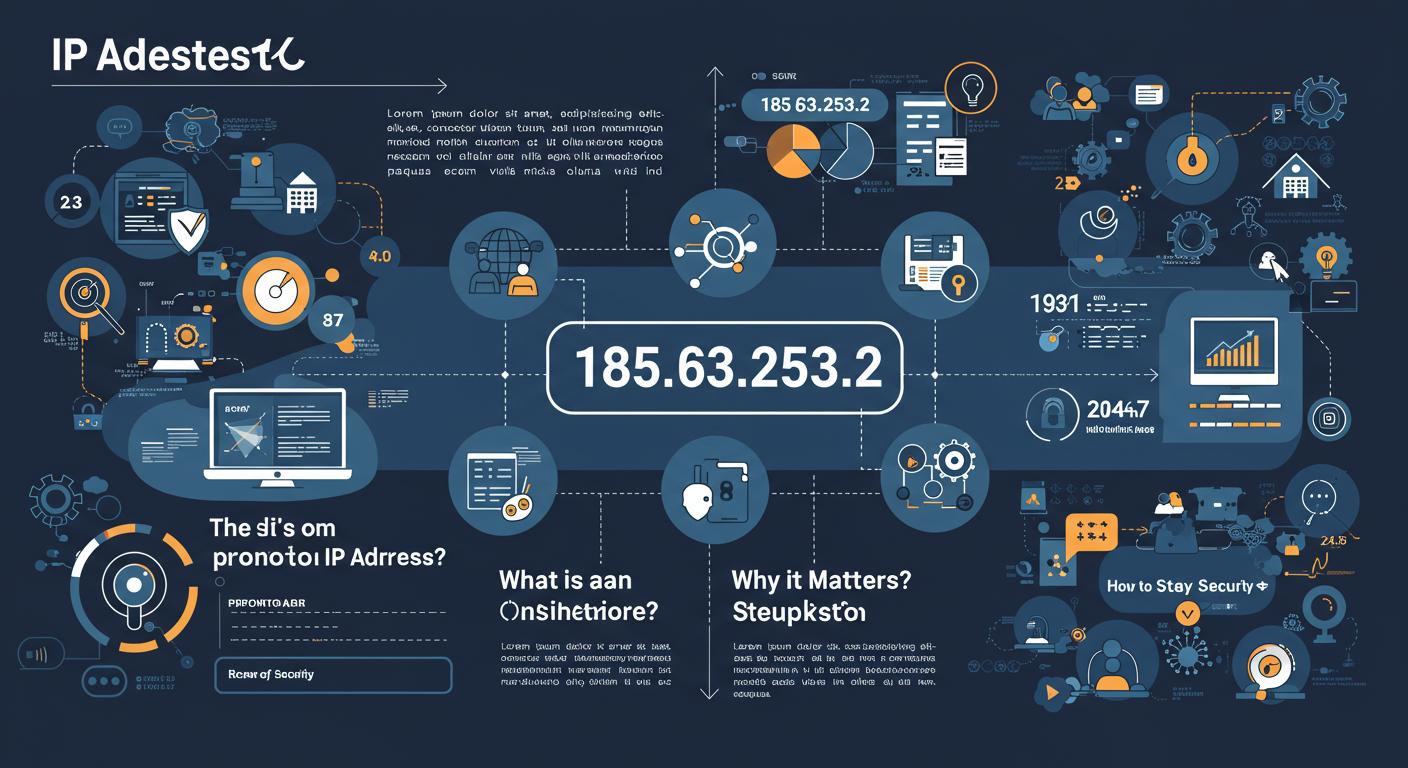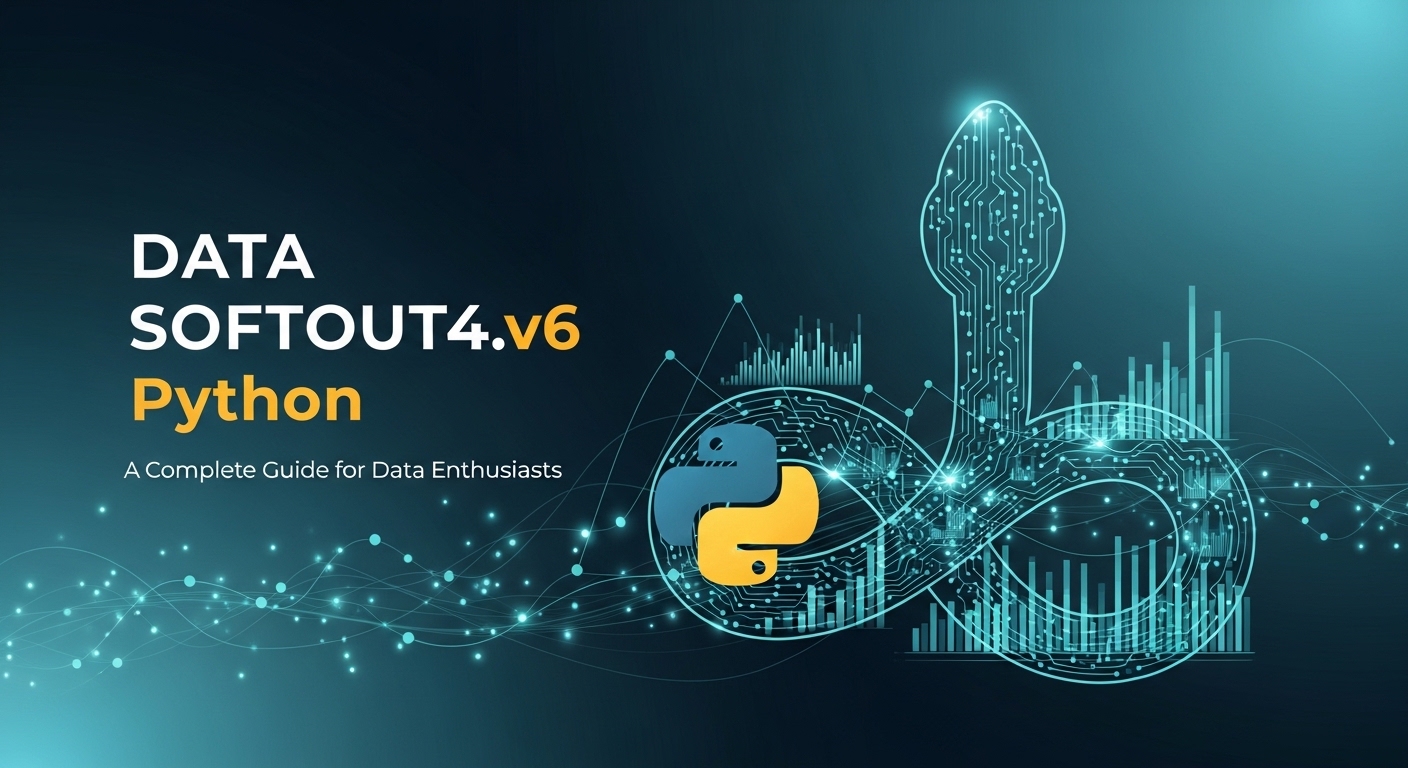In the ever-evolving landscape of digital connectivity, strange IP-like formats such as 185.63.253.2pp are starting to catch attention across forums,In the ever-evolving landscape of digital connectivity, strange IP-like formats such as are starting to catch attention across forums, cybersecurity reports, and network logs. But what exactly is ? Is it a standard IP address? A proxy server? Or perhaps something more complex or even malicious?
In this comprehensive guide, we break down everything you need to know about 185.63.253.2pp—from technical analysis and potential uses to cybersecurity implications and best practices for protection.
What Is 185.63.253.2pp?
At first glance, 185.63.253.2pp appears similar to a traditional IPv4 address, like 185.63.253.2. However, the suffix pp deviates from standard formatting.
Possible Interpretations:
-
Non-standard IP Format: The addition of “pp” could signify a custom or proprietary notation, possibly tied to proxy services or hidden networks.
-
Proxy Server Identifier: Some platforms append codes like “pp” to IPs to denote usage of a proxy or anonymizer.
-
Obfuscation Technique: Cyber actors sometimes use unusual domain or IP-like formats to obscure malicious links or redirect users through cloaked URLs.
Regardless of the actual origin, any mention of 185.63.253.2pp should be treated with caution and analyzed before interaction.
Is 185.63.253.2pp a Real IP Address?
Technically, IP addresses follow a standard format—IPv4 (e.g., 185.63.253.2) or IPv6 (e.g., 2001:0db8:85a3::8a2e:0370:7334). The string is not a valid IP in itself. However, it could be referencing the IP 185.63.253.2 with pp as an appended code or reference.
A WHOIS lookup for 185.63.253.2 shows that the IP is allocated to a block often associated with dedicated hosting providers or proxy services. This raises the question of whether 185.63.253.2pp is being used for masking, redirection, or anonymity.
The Potential Role of 185.63.253.2pp in Cybersecurity
Cybersecurity experts recommend monitoring traffic from and to addresses like 185.63.253.2—especially if they include suspicious modifiers like “pp.” Here’s why:
1. Suspicious Proxy Servers
Some threat actors use custom-named proxies like 185.63.253.2pp to evade firewall detection or anti-malware tools. This makes it harder to blacklist them outright.
2. Redirection Gateways
Malware campaigns often use redirects from disguised URLs such as 185.63.253.2pp. Users might be led to believe they are clicking a safe IP address, but are then forwarded to phishing or download pages.
3. Dark Web Association
Some dark web tools generate fake IP identifiers with suffixes like pp, dd, or anon. This helps cybercriminals organize and label endpoints used in illicit operations.
How to Identify if You’ve Interacted with 185.63.253.2pp
If you suspect that 185.63.253.2pp appeared in your network logs or web browsing activity, follow these steps:
🔍 Check Browser History
Look for unusual URLs that start with 185.63.253. and end with odd suffixes. These may be attempts to disguise malicious redirects.
🔧 Use Network Analysis Tools
Firewalls and security appliances often log attempted connections. Filter logs using 185.63.253.2 as a base to see if anything has connected to or from that IP.
🧠 Behavioral Anomalies
Unexpected system behavior (slowdowns, pop-ups, strange CPU usage) after visiting a website containing 185.63.253.2pp could indicate malware interaction.
Is 185.63.253.2pp Dangerous?
The presence of the pp suffix raises red flags due to its non-standard formatting and potential usage in obfuscation. While not inherently malicious, caution is warranted.
Potential Risks:
-
Data Harvesting: Connection to unknown IPs may allow bad actors to harvest cookies or browsing data.
-
Credential Phishing: Redirects could spoof login pages to steal passwords.
-
System Exploits: Some links may trigger malware downloads without explicit user permission.
How to Protect Yourself from Suspicious Links Like 185.63.253.2pp
✅ Install Antivirus and Antimalware Software
Modern tools can detect and block domains/IPs like 185.63.253.2pp if they attempt unauthorized activity.
✅ Use a Firewall with Deep Packet Inspection
Configuring DPI ensures any traffic attempting to go through unusual IP strings will be flagged or blocked.
✅ Avoid Clicking on Unknown Links
Never click on IP-looking URLs unless you are sure of their source. If you see something like 185.63.253.2pp in an email or social media message, it’s safer to ignore it.
✅ Keep Software Up to Date
Regular software updates close vulnerabilities that could be exploited by bad actors using gateways like 185.63.253.2pp.
Common Questions About 185.63.253.2pp
Q1: Is 185.63.253.2pp part of a known botnet?
There is no confirmed public report connecting 185.63.253.2pp to any active botnet. However, IPs in the 185.63.253.x range have previously been flagged for spam and anonymizer services.
Q2: Can 185.63.253.2pp be a legitimate service?
Possibly, but unlikely due to the unconventional naming. It may be a part of a private proxy service or internal testing system.
Q3: Should I block 185.63.253.2pp in my firewall?
Yes, blocking anything resembling 185.63.253.2pp is recommended unless you are absolutely certain of its legitimacy.
Final Thoughts on 185.63.253.2pp
Whether 185.63.253.2pp is a legitimate identifier or a cloaked redirect used by malicious actors, the ambiguity alone justifies caution. As the digital landscape grows more complex, unusual formats like this are becoming more common in scams, obfuscation methods, and data harvesting schemes.
For individuals and businesses alike, staying informed and protected against unusual digital footprints like 185.63.253.2pp is key to maintaining cyber hygiene. Use monitoring tools, apply proactive security practices, and always verify the source of unfamiliar URLs or IP-like strings.
, and network logs. But what exactly is 185.63.253.2pp? Is it a standard IP address? A proxy server? Or perhaps something more complex or even malicious?
In this comprehensive guide, we break down everything you need to know about —from technical analysis and potential uses to cybersecurity implications and best practices for protection.
What Is 185.63.253.2pp?
At first glance, 185.63.253.2pp appears similar to a traditional IPv4 address, like 185.63.253.2. However, the suffix pp deviates from standard formatting.
Possible Interpretations:
-
Non-standard IP Format: The addition of “pp” could signify a custom or proprietary notation, possibly tied to proxy services or hidden networks.
-
Proxy Server Identifier: Some platforms append codes like “pp” to IPs to denote usage of a proxy or anonymizer.
-
Obfuscation Technique: Cyber actors sometimes use unusual domain or IP-like formats to obscure malicious links or redirect users through cloaked URLs.
Regardless of the actual origin, any mention of 185.63.253.2pp should be treated with caution and analyzed before interaction.
Is 185.63.253.2pp a Real IP Address?
Technically, IP addresses follow a standard format—IPv4 (e.g., 185.63.253.2) or IPv6 (e.g., 2001:0db8:85a3::8a2e:0370:7334). The string 185.63.253.2pp is not a valid IP in itself. However, it could be referencing the IP 185.63.253.2 with pp as an appended code or reference.
A WHOIS lookup for 185.63.253.2 shows that the IP is allocated to a block often associated with dedicated hosting providers or proxy services. This raises the question of whether is being used for masking, redirection, or anonymity.
The Potential Role of 185.63.253.2pp in Cybersecurity
Cybersecurity experts recommend monitoring traffic from and to addresses like 185.63.253.2—especially if they include suspicious modifiers like “pp.” Here’s why:
1. Suspicious Proxy Servers
Some threat actors use custom-named proxies like 185.63.253.2pp to evade firewall detection or anti-malware tools. This makes it harder to blacklist them outright.
2. Redirection Gateways
Malware campaigns often use redirects from disguised URLs such as . Users might be led to believe they are clicking a safe IP address, but are then forwarded to phishing or download pages.
3. Dark Web Association
Some dark web tools generate fake IP identifiers with suffixes like pp, dd, or anon. This helps cybercriminals organize and label endpoints used in illicit operations.
How to Identify if You’ve Interacted with 185.63.253.2pp
If you suspect that 185.63.253.2pp appeared in your network logs or web browsing activity, follow these steps:
🔍 Check Browser History
Look for unusual URLs that start with 185.63.253. and end with odd suffixes. These may be attempts to disguise malicious redirects.
🔧 Use Network Analysis Tools
Firewalls and security appliances often log attempted connections. Filter logs using 185.63.253.2 as a base to see if anything has connected to or from that IP.
🧠 Behavioral Anomalies
Unexpected system behavior (slowdowns, pop-ups, strange CPU usage) after visiting a website containing 185.63.253.2pp could indicate malware interaction.
Is 185.63.253.2pp Dangerous?
The presence of the pp suffix raises red flags due to its non-standard formatting and potential usage in obfuscation. While not inherently malicious, caution is warranted.
Potential Risks:
-
Data Harvesting: Connection to unknown IPs may allow bad actors to harvest cookies or browsing data.
-
Credential Phishing: Redirects could spoof login pages to steal passwords.
-
System Exploits: Some links may trigger malware downloads without explicit user permission.
How to Protect Yourself from Suspicious Links Like 185.63.253.2pp
✅ Install Antivirus and Antimalware Software
Modern tools can detect and block domains/IPs like if they attempt unauthorized activity.
✅ Use a Firewall with Deep Packet Inspection
Configuring DPI ensures any traffic attempting to go through unusual IP strings will be flagged or blocked.
✅ Avoid Clicking on Unknown Links
Never click on IP-looking URLs unless you are sure of their source. If you see something like 185.63.253.2pp in an email or social media message, it’s safer to ignore it.
✅ Keep Software Up to Date
Regular software updates close vulnerabilities that could be exploited by bad actors using gateways like 185.63.253.2pp.
Common Questions About 185.63.253.2pp
Q1: Is 185.63.253.2pp part of a known botnet?
There is no confirmed public report connecting to any active botnet. However, IPs in the 185.63.253.x range have previously been flagged for spam and anonymizer services.
Q2: Can 185.63.253.2pp be a legitimate service?
Possibly, but unlikely due to the unconventional naming. It may be a part of a private proxy service or internal testing system.
Q3: Should I block 185.63.253.2pp in my firewall?
Yes, blocking anything resembling is recommended unless you are absolutely certain of its legitimacy.
Final Thoughts on 185.63.253.2pp
Whether 185.63.253.2pp is a legitimate identifier or a cloaked redirect used by malicious actors, the ambiguity alone justifies caution. As the digital landscape grows more complex, unusual formats like this are becoming more common in scams, obfuscation methods, and data harvesting schemes.
For individuals and businesses alike, staying informed and protected against unusual digital footprints like is key to maintaining cyber hygiene. Use monitoring tools, apply proactive security practices, and always verify the source of unfamiliar URLs or IP-like strings.














